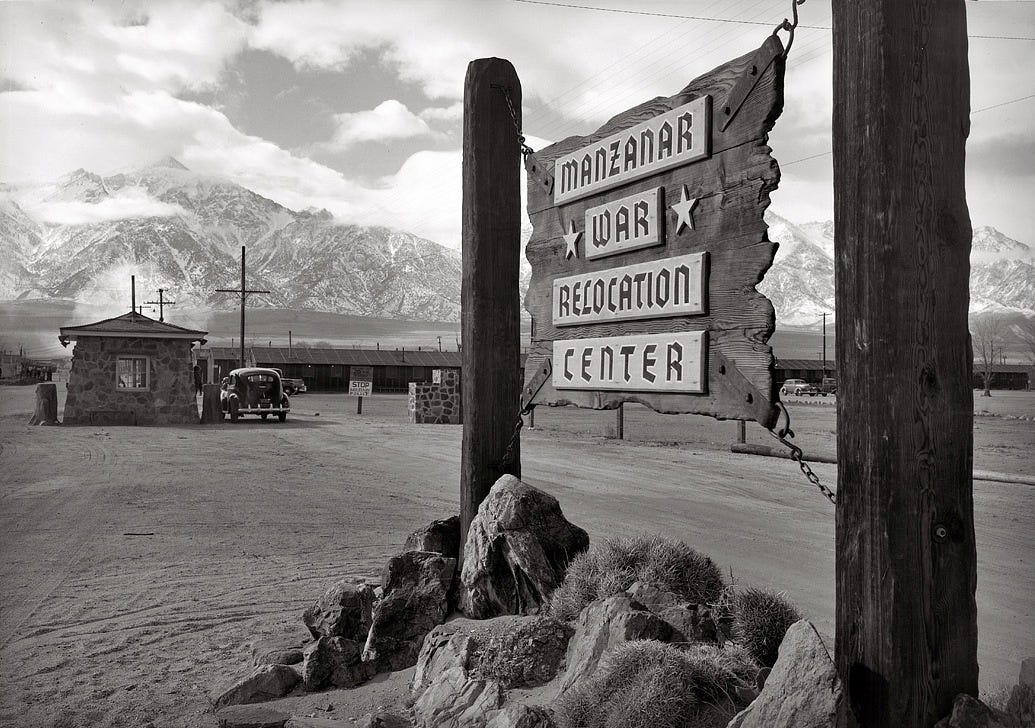Japs Not Welcome Anymore
In the Land of the Free
The American naval base of Pearl Harbor in Honolulu, Hawaii was bombed by the Japanese Navy on December 7th, 1941. On February 19th, 1942, US President Roosevelt signed Executive Order 9066, authorizing the forced removal of all persons deemed a threat to national security from the West Coast to "relocation centers".
The first of ten “relocation centers” (really, concentration camps) was Manzanar, about 350 km north of Los Angeles.
The town had a history of injustice. “Manzanar” means apple orchard in Spanish, and it had been thriving at the turn of the century with 5,000 acres of apple, pear, and peach trees under cultivation; along with crops of grapes, prunes, potatoes, corn and alfalfa; and large vegetable and flower gardens. However, in 1913, Los Angeles Aqueduct was completed. In subsequent dry years, the city would pump the ground water and drain away surface water for its needs, leaving Manzanar and the rest of the valley dry. Soon, it became a ghost town, until the US Army leased the space for the “relocation center”.
The very same day Order 9066 was signed, the Federal Bureau of Investigation (FBI) rounded up 5500 men – Issei, or first generation Japanese immigrants. In all, 110000 people of Japanese ethnicity were forcibly relocated. Two-thirds of these were native born American citizens.
Between March 1942 and November 1945, the inmates were made to live in inhuman conditions. Extreme weather, poor food and rampant disease was a fact of life. Lack of privacy was a major problem, especially since the camp had communal men's and women's latrines, with no partitions or stalls.
During the time Manzanar was in operation, 188 weddings were held, 541 children were born in the camp, and between 135 and 146 people died.
Manzanar was the sixth camp to be closed, with the final inmate leaving on November 21st, 1945. While many left voluntarily, some refused- they had no place to go. They had lost everything when they were forcibly uprooted from their homes. They had to be forcibly removed once again, this time from Manzanar.
Mike Shinoda, co-founder of popular band Linkin Park, also had a hip-hop side project called Fort Minor. On their only album, The Rising Tied (2005), is one of my favourite tracks - Kenji. Shinoda’s father was was interned with his family during the war. He interviewed his father and aunt about their experience. These remarks are also featured in the track. Give it a listen with subtitles:





No way I will listen to the song.
I did not know of this. Thank you Nishant. Really.